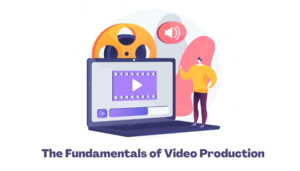Search engine optimization (SEO) has been an integral part of digital marketing for over two decades now. However, future of SEO as search engines like Google become more advanced with capabilities like natural language processing and voice search, some are questioning if SEO, as we know it today, may become obsolete in the next couple of years.
SEO has constantly been evolving since its inception in the 1990s. From focusing on keyword stuffing in the early 2000’s to emphasizing quality content and user experience today, SEO has come a long way over the past 20+ years. However, current advancements in artificial intelligence and machine learning are causing some digital marketers to wonder if SEO will even be relevant in the next 3-5 years.
In this post, we’ll explore some of the key developments in the world of search engines and whether they truly spell the end for SEO as a crucial strategy for businesses shortly.
The Rise of Voice Search and Assistants

One of the biggest threats touted against the future of SEO is the rise of voice search and assistants. With the popularity of devices like Amazon Alexa and Google Home that allow for spoken queries instead of typed search terms, does it diminish the importance of targeting keywords?
According to recent surveys, almost half of all searches will be conducted via voice by the year 2020. This has gotten many digital marketers worried, especially since voice search queries tend to be longer and more conversational compared to typed keywords.
However, experts believe voice search will only complement SEO, not replace it altogether. Natural language queries still require an in-depth understanding of search intent and how to provide the most relevant results. Voice may change a few tactical aspects but the foundations of keyword research and providing a great user experience will remain key pillars of SEO.
The Smarter Google Algorithm
The Google algorithm has only gotten more intelligent through the years with machine learning advancements to understand search intent better. Today, Google can comprehend complex long-tail searches and place greater emphasis on understanding content and context.
Does this evolving algorithm spell doom for keywords? Many believe that the core foundations will still remain the same. You still need to do thorough keyword research to identify terms and topics people are searching for. But the strategies will require an evolution as well with a greater focus on E-A-T (Expertise, Authoritativeness, Trustworthiness) so Google can easily understand your niche and credible background.
No doubt the algorithm will only get smarter over time. But human-created, optimized content will be crucial to help search engines interpret pages better. The living-and-breathing algorithm still needs webmasters and digital marketers to understand user intent and provide the information they need.
Read More: What Are The Top Real Estate SEO Services For 2023?
Understanding User Intent
As AI capabilities expand, Google is trying harder than ever to grasp the underlying user intent behind a search query or voice command. However, search engines still struggle to interpret the meaning and context on their own.
Optimizing for the right keywords after thorough research into what your audience is interested in will be crucial. But beyond that, you need to emphasize aspects like dwell time, click-through rates, and other behavioral metrics to demonstrate if your content truly answers search intent.
SEO needs to focus less on gaming the system and more on understanding audience needs if it is to survive through 2024 and beyond. But this user-first approach is still very much reliant on identifying the right search terms and topics to create content around in the first place before optimizing further to provide the best experience.
The Need for Digital Marketers

While AI is getting smarter, SEO also requires a human touch with knowledge of audiences, industries, and analytics. Determining focus keywords, optimizing technical aspects like site speed, structuring content appropriately, earning credible backlinks, and monitoring rankings all need strategic digital marketers.
Even as search engines continue enhancing their capabilities, they will still rely on human SEO experts who can translate user needs into the language search engines understand. The skills involved will require more analytical and interpretative abilities but very much remain essential. Enrolling in a digital marketing course can equip aspiring professionals with the necessary skills to navigate this evolving landscape, ensuring they stay ahead in the dynamic world of SEO and digital marketing.
The Future of SEO
In conclusion, SEO as we know it today will evolve and require new strategies as voice search, AI, and algorithms get more advanced. But it will continue to remain an integral part of digital marketing. Understanding audiences and their intent before optimizing and providing the information they need will be key.
Aspects like keyword research and backlinking will always be important to signal relevance and authority to search engines. Content needs to become more comprehensive and cover all stages of the user journey from awareness to consideration before clearly addressing the actual intent.
SEO may change tactics but its foundational principles will survive through 2024 and for years to come. In many ways, it will only open new opportunities for businesses once they understand audiences better and learn to optimize based on user needs above everything else. The future remains vibrant for this evolving field.







